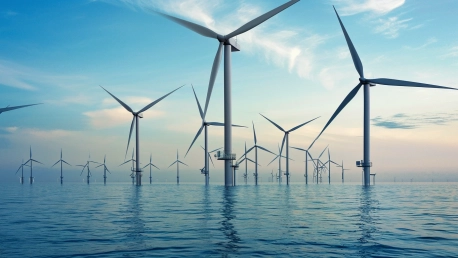Donald Trump, the former president and contender for the White House in the upcoming election, has sharpened his attack on renewable energy, specifically targeting offshore wind energy projects. In a promise that harks back to his previous administration’s energy policies, Trump has vowed to dismantle the progress made on this front if he secures a return to office. Not only has he pledged to issue an executive order to stop these initiatives on his first day back, but he has also continuously criticized them for a range of alleged drawbacks, including detrimental effects on marine life, visual impact on coastlines, and financial exorbitance. This rhetoric emphasizes a return to traditional energy sources and represents a critical moment in the ongoing debate on America’s energy future.
Trump’s Opposition to Offshore Wind Energy
In railing against offshore wind energy projects, Trump has highlighted the perceived pitfalls, asserting a connection between the operation of wind turbines and the rising number of whale deaths—an assertion disputed by experts. The stance adopted by Trump alludes to anecdotal reports and contentious claims while overlooking the scientific consensus that identifies factors such as fishing practices, pollution, and climate change as significant threats to marine ecosystems.The opposition plays into broader critiques levied against the Trump administration’s approach to environmental policy—critiques that spotlight the disregard for the renewable energy sector’s potential to mitigate climate issues. His pinpointing of the visual spoilage of landscapes, such as those experienced by his Scottish golf course, underscores what many see as a personal vendetta overshadowing a global environmental necessity. Critics argue that the renewable energy attacks are based less on science and more on personal or political agendas.
The Pushback Against Green Policies
Extending beyond his discord with offshore wind energy, Trump has reproached a spectrum of environmentally friendly policies implemented by the current administration. Electric vehicles (EVs), another cornerstone of the Biden administration’s green strategy, have fallen under Trump’s scrutiny. He has pledged to obliterate any mandates for EVs, citing unsound arguments about their inefficacy in cold weather, and opposes any limits on traditional gasoline-powered vehicles.Furthermore, Trump has signaled his intention to upend Biden’s pause on new licenses for liquefied natural gas exports, aligning himself firmly with the American gas industry. By promoting policies that could increase fossil fuel consumption, Trump posits his economic narrative at odds with the low-carbon transition essential for mitigating the impacts of climate change. This counter-movement against green policies underscores the broader ideological divide in the approach to American energy strategy.
Rejection of International Climate Agreements
Foremost among Trump’s environmental policy reversals is the rejection of the Paris climate agreement, which Biden had reentered following Trump’s earlier withdrawal. To Trump, this international accord unfairly penalizes the United States without delivering sufficient global environmental improvements. This viewpoint disregards the consensus that sees international collaboration as crucial in combating the climate crisis.Trump’s stance underscores an isolationist and unilateral approach to environmental issues, a significant shift from the global efforts espoused by many of America’s allies. Whether or not this stance will resonate with the electorate remains an open question, one with serious implications not just for the country’s climate policy but also for its diplomatic relations and role in global environmental governance.
The Debate on America’s Energy Future
Ex-president Donald Trump, eyeing the presidency once more, has intensified his criticisms of renewable energy, zeroing in on offshore wind energy. Echoing his past administration’s stance, Trump plans to dismantle strides made in this area, committing to halt these efforts with an executive order on day one should he win office. He lambasts these projects for purported negative impacts on ocean ecosystems, aesthetic disruption of coastal vistas, and high costs. Trump’s discourse signals a potential pivot back to conventional energy resources, underscoring a pivotal moment in the discourse surrounding the direction of U.S. energy policy. His language and promises resonate with a broader conversation on balancing environmental concerns with economic and energy needs. Achieving this balance is a pressing issue as the nation considers its path toward sustainable energy while addressing the immediate demands of its citizens and economy.









